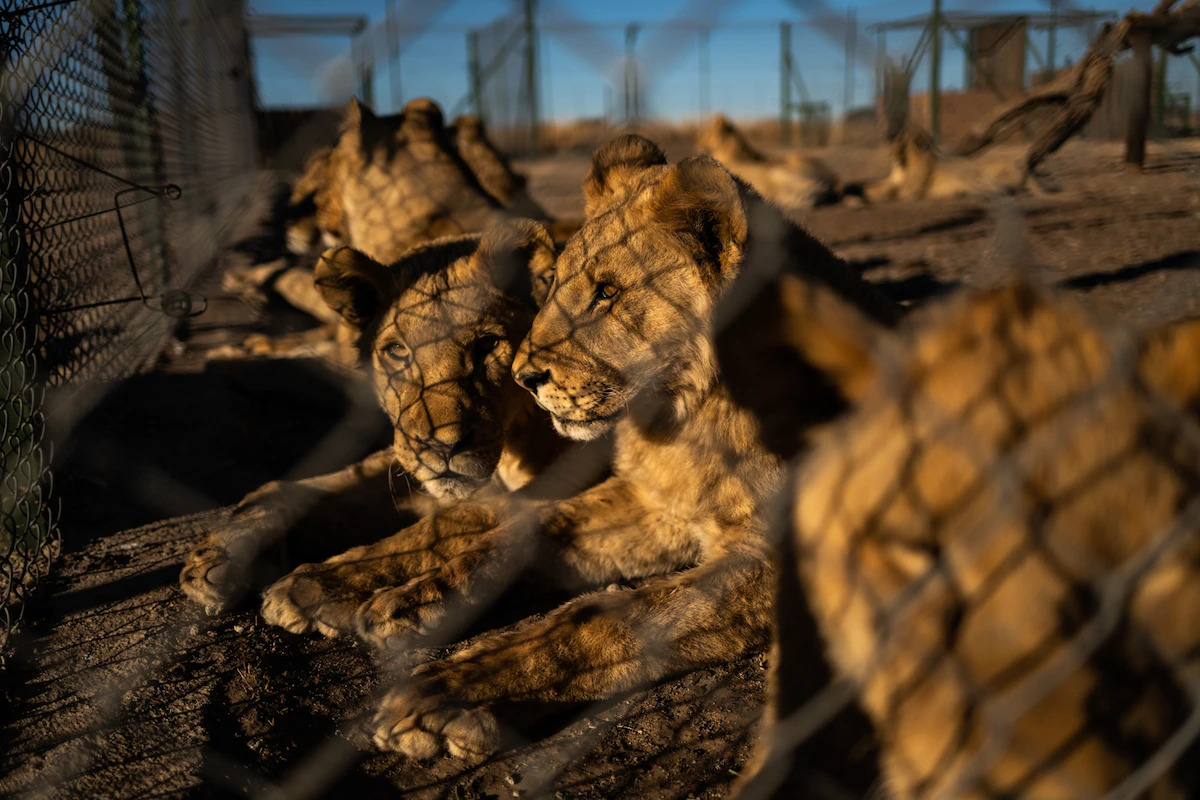South Africa has taken steps to end its multimillion-dollar lion-breeding industry, which supplies cubs for tourism, lions for trophy hunts, and bones for traditional medicine.
In a statement on May 2, Barbara Creecy, the minster of South Africa’s Department of Forestry, Fisheries and the Environment, acknowledged the “view that the captive lion breeding industry did not contribute to conservation and was doing damage to South Africa’s conservation and tourism reputation.”
With this announcement, the government will stop issuing permits to breed, keep, hunt, or interact with captive lions and is revoking current breeding permits. A number of factors are thought to have influenced this decision, including growing public opposition to the industry for being inhumane, possible links between legal and illegal trade in lion bones, and greater understanding of the diseases that animals can pass to humans.
It’s estimated that there are between 6,000 and 8,000 captive lions in private facilities throughout the country, but Ian Michler, the director of Blood Lions, a South African nonprofit dedicated to ending the captive lion industry, says there may be as many as 12,000.
There are about 2,000 wild lions in South Africa and an estimated 20,000 continent-wide. Their numbers have fallen by about half during the past quarter century as habitats have become fragmented and prey animals such as antelopes have become scarcer. Meanwhile, lions are coming into contact with people in rural communities more often, with deadly results for both. And according to Creecy, the legal trade in captive lion parts could increase poaching of wild populations.
Reports about South Africa’s captive lion industry have shown that the animals often are kept in inhumane conditions, such as in overcrowded spaces with poor nutrition and veterinary care. (Take a look inside one of South Africa’s controversial lion farms.)
Yesterday’s announcement therefore is seen not only as a win for conservationists but also for animal welfare advocates. “Thousands of farmed lions are born into a life of misery in South Africa every year in cruel commercial breeding facilities,” Edith Kabesiime, the wildlife campaign manager of the nonprofit World Animal Protection, wrote in an email. “This latest move by the government of South Africa is courageous—taking the first steps in a commitment to long-lasting and meaningful change. This is a win for wildlife.”
In some captive-breeding facilities around the country, tourists pay to pet, bottle-feed, and take selfies with lion cubs and walk alongside more mature animals. Critics say such interactive tourism leads to abuse and inhumane breeding practices such as speed breeding—the early removal of cubs from their mothers so they can produce more young.
Many captive lions are sold to hunting facilities at the end of their lives, Michler says, where they’re shot by trophy hunters, sometimes in “canned” hunts held in fenced areas. Trophy hunters keep the skins and heads, and their bones are often exported to Asia for use in traditional medicine.
South Africa set an annual quota for the number of lion skeletons that could be exported legally until 2018, when South Africa’s National Council of Societies for Prevention of Cruelty to Animals filed suit to stop the practice. That year, the government nearly doubled the department’s previous export quota, from 800 to 1,500.
